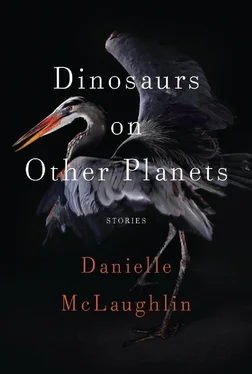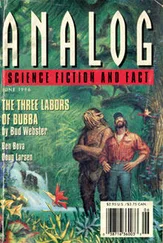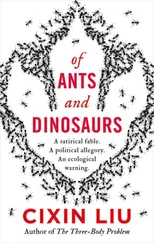“It’s only for half an hour,” she said. “He’ll be fine. Give him his lunch before you go.”
“I give him his lunch every day,” he said. He was silent for a moment, and then he said: “You really think I should go?”
“Yes,” she said. “I do.”
“Okay, then,” he said. “I will.”
—
THE PONY TRAP HAD most likely belonged to a woman called Eliza Harriet Smithwick, who, according to the title deeds, had been granted a life interest in the house and a hundred acres as part of a marriage settlement in 1886. An ancestor of hers had acquired the land from the Earl of Mountrath for the princely sum of eighty pounds, ten shillings. Oh, how she and Bill had laughed with the solicitor about that — eighty pounds, ten shillings! — because it was possible for anything to be funny in those days, anything at all. They’d bought in those last few weeks before the crash, when the market, like a ball in flight, had quietly, imperceptibly, stopped rising, had hung for a millisecond at the peak of its trajectory before it began to drop.
She was thinking about this as she drove too fast up the avenue the following evening, her knuckles white on the steering wheel. It was just after five-fifteen P.M. Nobody had been able to cover her appointments, or, more accurately, nobody had been willing to. It was like that at work lately: everybody pretending busyness, everybody watching, the way children in a parlor game watch the chairs, knowing that the music could stop at any moment. Bill had telephoned at two, inquiring as to the whereabouts of a particular blue shirt. “Be sure to lock the doors,” she’d said, to which he’d replied that he always locked them, this being a downright lie. She didn’t tell him that she’d be late.
As it turned out, the front door was locked. Stepping into the hall, she heard canned laughter and the soundtrack of a cartoon. “Hey, Finn,” she called, putting down her briefcase. She hung up her coat and looked into the TV room. A plate of peas was abandoned on the floor beside the armchair. A DVD was playing, but the room was empty. “Finn?” she called again. “Finn, sweetheart, Mom’s home.” He wasn’t in his bedroom, either. She went from room to room upstairs, then downstairs again, where, in the dining room, she noticed the curtains moving and saw that the window was open.
She continued to call his name as she circled the house and garden. She climbed through the post-and-rail fence into the wasteland next door. From where she stood, she could see as far as the rough track that ran along the river, and, in the next field, the rows of unfinished houses. She cupped her hands around her mouth. “Finn!” she shouted.
A man was walking at speed along the track, breaking now and again into a run. He veered off and came toward her, his head bent, his hands in the pockets of his anorak. He was in his thirties, she guessed, with straggly brown hair and a reddish-brown beard, a colony of pimples on one cheek. “I heard you calling him,” he said. “I know where he is.”
“Where?” she said.
“Over there.” He pointed to the houses. “I seen him earlier.” His anorak was torn, and he was wearing dirty gray trainers and no socks.
“Thank you,” she said curtly. She took a step forward, but he remained positioned in front of her.
“I seen you going off in your car sometimes,” he said. “In the mornings.”
She wondered if this was an attempt to intimidate her, but he was grinning, the grin open and a little vacuous, and she decided he was probably harmless. “Yes,” she said, “that’s right. I work in the city.” She stepped around him and walked quickly in an effort to put some distance between them, picking her way over a coil of discarded wire that wound snakelike through the grass. He caught up and walked alongside, so close that his arm brushed against hers. She would run to one of the occupied houses if he got awkward, she decided; she was nearer to them now than she was to her own house.
“Through here,” the man said. He had scurried ahead and was pulling wide an opening in the chain-link fence. He was as eager as a child, smiling as he held the mesh open, and she noticed how his wrists were frail and thin and scarred. She stooped to fit through the gap, and as she did she felt his hand, briefly, on the small of her back. In the next field, dozens of houses stretched out in front of her. Most of the windows had been smashed, and they stood blind in the late-afternoon light, surrounded by weeds and litter. There, still, were the refuse sacks she remembered from before, but there was no van, nothing to suggest that anyone was living here. The man led her across ground strewn with cans and broken glass to a house in the middle of a row. “In here,” he said, climbing over a window ledge, but she shook her head. The earth beneath the ledge was churned up, indented with footprints of various sizes. “Where’s my son?” she said.
The man was standing in what had likely been intended as a sitting room. The floor was rough concrete, and seeds blown into crevices had taken root, weeds pushing up through cracks. She saw in one corner a mug that belonged to Finn and next to it the jacket her sister had given him for his birthday. How long had he been coming to this place? she wondered. How long had he been hanging out with this man? Because the man’s belongings were here, too — clothes, cardboard boxes, a sleeping bag — all piled in the center of the room. She took a deep breath. “You told me you saw him,” she said. “Now can you please tell me where he is?”
He picked up a metal rod from a pile of rubbish and struck it on the floor a couple of times. Swinging it back and forth, he crossed the room to the fireplace. She saw then that a thing she had taken for a bundle of rags was a dog stretched out, dead, its head at an odd angle to its body. There was a large bald circle on its back and, in the center of the circle, a wine-colored spot, like a birthmark, fading into softer reds and pinks as it radiated outward. Gripping the rod in both hands, the man raised it high, then brought it down again, piercing the dog through the stomach.
“Where is he?” she screamed, banging the window ledge with her fist. “What have you done with him?”
He stared at her blankly and rubbed the back of one hand across his eyes, as if he’d just woken. “He was here this morning,” he said.
She turned and ran, back to the gap in the fence, tripping on the way, falling and tearing her tights. Her hands were shaking as she struggled to part the wire mesh and squeeze through. When she’d gone a little distance, she stopped to catch her breath. She looked behind to see if the man was following, but there was no sign of him. She stood for a moment and tried to think what to do. It was possible that while she’d been here, Finn had returned home, had climbed back in through the window and was there now, waiting for her, or for his father, who would be home shortly. It was also possible that he was down by the river, searching for dead things, so absorbed in his activities that he hadn’t heard her. Other possibilities crowded in on the heels of these, but she pushed them aside. She looked toward their house and saw it as a stranger might: an abandoned outpost, stately but diminished, plundered. The sun had moved lower in the sky, and now it caught the glass of the windows, causing them to blaze as if they’d been set alight. For a moment she imagined she saw the face of a woman pressed against a pane. What became of Eliza Harriet Smithwick? she wondered, and what would she think if she saw what had been done to her house and her gardens? She became aware of a stinging pain in her leg and, looking down, noticed that her knee was bleeding. “Finn!” she shouted.
And then she heard it: a yell, a small, joyous bellow of trumpeting delight that was her son’s voice, coming from the direction of the river. She turned and saw him cresting the grassy embankment above the water, sun reflecting off the near-white blond of his hair. She began to run toward him. He had a stick in his hand, and he was waving it in the air like a sword and making whooping noises. She was within a dozen yards of him before she realized he was not alone. Lying on the grass, reading, was a slim, tanned woman of about thirty. Sunlight filtered through the trees, parting the shadows along the bank, streaking her long hair. The woman raised her eyes from a book. It was a Bible bound in brown leather, and, before she closed it and sat up, she marked her page with a yellow ribbon. “Hello,” she said, shading her eyes with her hand. “Isn’t it a glorious day? We thought it a shame to stay indoors.” Finn waved to his mother but didn’t go to her. He seated himself next to the woman and picked up a magazine from a pile on the ground.
Читать дальше












